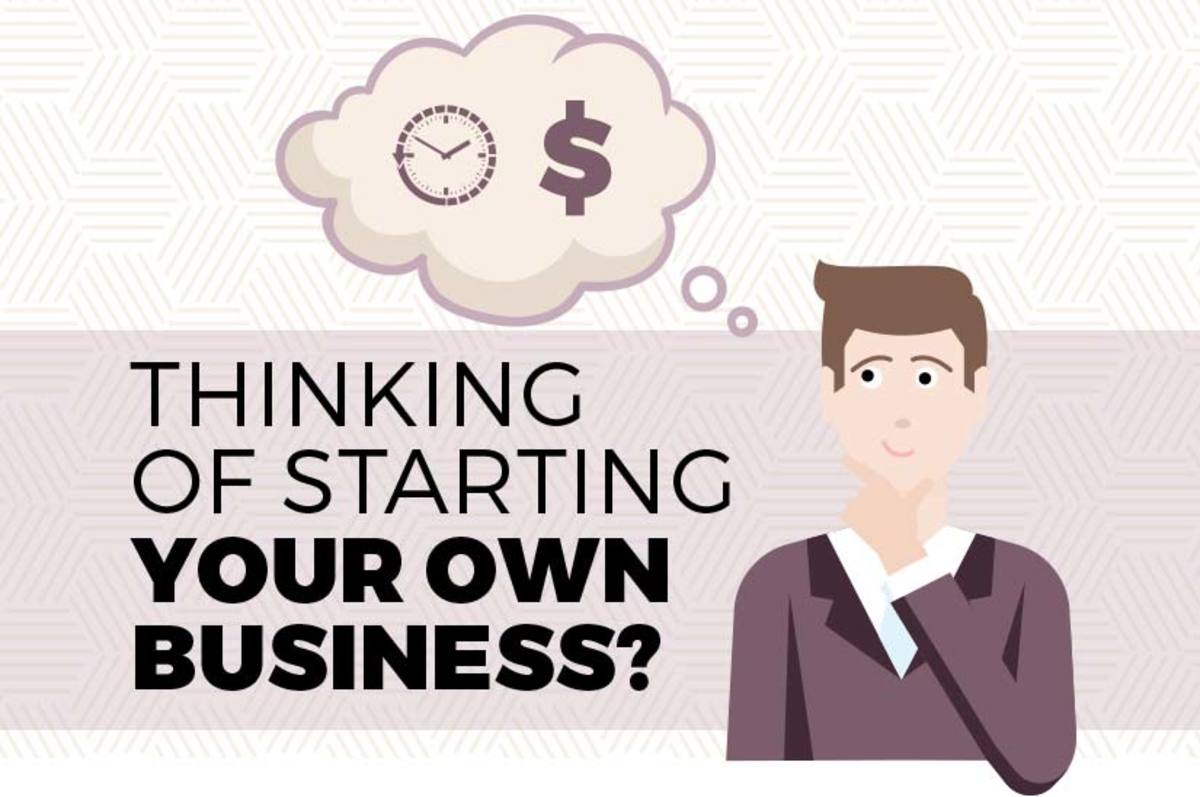- HubPages»
- Business and Employment»
- Small Businesses & Entrepreneurs»
- Entrepreneurship
7 Things to Be Aware of Before You Begin Your Entrepreneurship Journey
There are many different reasons that entrepreneurs chose to become entrepreneurs, but one thing that all entrepreneurs and small business owners agree on is that being an entrepreneur is great. Despite the challenges and risks, when done right, the journey of entrepreneurship can be hugely rewarding. There are endless reasons for this, and every entrepreneur will have his or her own personal reasons that make them choose this path. On the other hand, others may find the idea daunting due to the uncertainty of a business venture.

However, to increase the chances of success in the entrepreneurial field, it is important to have the necessary knowledge and the right people to support you. If you are just starting out on your entrepreneurial journey, here are seven basic elements that you need to know before you begin your very own exciting entrepreneurial journey.
1. Determine the Industry

One of the important decisions to make when forming a new business is being aware of which industry to participate in. With so many industry choices, it can be a challenge to understand which industry is the right choice for you. The only way to know if what seemed like a great idea in your dorm room can become a viable business is to do the research.
Take the time to thoroughly study all the elements that go into establishing your new business. Often time, picking the wrong industry to start a business is a result of putting profit first. The purpose of every business should not be only just about money. It should begin with value creation, delivering value in an efficient way that it will generate profit after cost.
2. Do Not Wait for the Perfect Plan

Waiting too long to perfect your plans can set a business back. Having a plan is good but waiting for a perfect plan before taking action is a waste of resources and time, it may keep you from doing anything at all. Too much planning is a cathartic distraction. While it is okay to have a plan, do not wait for the perfect plan.
3. Managing Financial Expectations

Inability to manage financial expectations and premature financial decisions are often the cause of a business downfall. No matter how good a venture is, bad financial decisions can be extremely detrimental. Many start-up companies and small businesses end up in failures largely because of poor financial decisions.
One important thing to note is the necessity of distinguishing funds for personal use and company use. Confusing these two and not having a proper guideline for appropriate fund allocation is a recipe for disaster.
4. Leverage to Succeed

It is impossible to make it alone, running a business and expecting to succeed. Entrepreneurs choose to run a venture with partners or through collaboration because of the different skill sets the various parties brings to the table.
Regardless of company size, running any kind of business requires skills and knowledge in a variety of areas. Hence, it is important to talk to people with experience and diverse background to get relevant information and knowledge that is pertinent to the success of your business venture.
5. Select Your Business Partner

Choosing the right partnership is important and brings forth many advantages for every business. It allows entrepreneurs to leverage complementary skill sets, create a good working environment and pool startup costs and spread out the risks of the venture among business partners.
The people you choose to include and associate yourself with the business should be chosen carefully as it will be the determinant for the success or downfall of the business venture. Hence, make sure you have a foolproof selection plan and criteria for your leveraging choices.
6. Think Outside the Box

The concept ‘think outside the box' in this context means challenging the norm and try to figure out an alternative demand or even better, create the demand for the market. Businesses ought to create value and a way to do so is to address the needs and wants of the market. Being able to think creatively and freely to create a unique demand for a new product will give an edge to a new venture. It is also called 'getting out of your comfort zone'. Nobody ever died of discomfort, living in the name of comfort has killed more ideas, more opportunities, more actions, and more growth.
7. Decide on Your Business Offering

If you intend to begin as an entrepreneur with your own business, it is not necessary to have a product line. It is a misconception that to run a business, you should get started right away by building your first product and selling it to the market. But the truth is, it is not that easy to come up with a great product idea.
It requires time and money to be invested in product development and the success of the new product line is not necessarily guaranteed. Thus, some entrepreneurs choose their first venture or start-up as a service- based provider. The logic behind this is to create a channel to start generating cash flow and go on to capitalize on the funds for a possible future venture.








